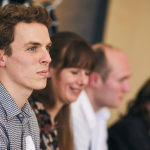Data Morgana is a short lecture series, divided into four parts, about the promises, hype, and misconceptions surrounding data science. During these lectures, the role of data science in general scientific practice, and in our global society will be put up for discussion. We look beyond the hype, beyond the mirage of unlimited promises and beyond hollow buzzwords. What have we accomplished with data science; what has it cost us; and what can we actually expect from it in the future?
On the 9th of March, the first Data Morgana session took place on the foundations and development of data science discussed by our first speaker Dr. Richard Starmans. On the 23rd of March, the second session took place, on the Milestones of Data Science by Meike Reusken. And in the third session on the 6th of April, we focused on the Risks and Limitations of Data Science with Dr. Doina Bucur.
After the previous sessions, where we largely assessed our current relation to data science and reflected on the effects data science has had on humanity so far, time has come to look ahead. In this fourth and final session on the 12th of April at 16:00h, our focus is on the Future of Data Science. The last speaker of the series is Prof. dr. Vincent C. Müller.
Upcoming Data Morgana sessions
March 9: The Advent of Data Science
March 23: Data Science Milestones
April 6: Risks and Limitations of Data Science
April 12: The Future of Data Science
Studium Generale
Check out the website of Tilburg University for more information and the link to the lectures.
Speakers
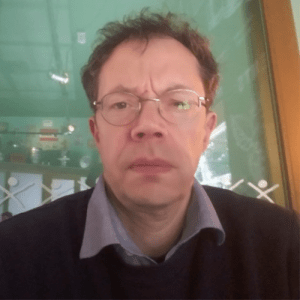
Dr. Richard Starmans
He is the managing director of The Netherlands Research School for Information and Knowledge Systems (SIKS). He is also an Associate Professor at the Tilburg School of Humanities and Digital Sciences (Tilburg University).
His research and publications focus primarily on the intersection between philosophy and science, specifically mathematical statistics, data science and artificial intelligence. In the “Handbook of Big Data” (Buelmann et al, Chapman & Hall/CRC, New York, 2016), Starmans wrote the chapter on the foundations of data science titled: “The Advent of Data Science – some considerations on the unreasonable effectiveness of data”.
Do you want to watch or re-watch the first session? Check out the following video:
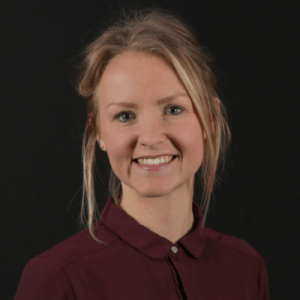
Meike Reusken
She is a PhD candidate at the Zero Hunger Lab of Tilburg University. She is working together with the United Nation’s World Food Program and the Dutch Food Bank to find innovative and sustainable solutions to tackle hunger in the Netherlands and worldwide.
The academic background of Meike is diverse as she studied multiple disciplines over the past years. She received her Bachelor in International Business Administration at the Erasmus University for which she attended a semester abroad at the Chinese University of Hong Kong. Additionally, Meike holds two master titles, in Economics (Erasmus University) and in Econometrics (Tilburg University).
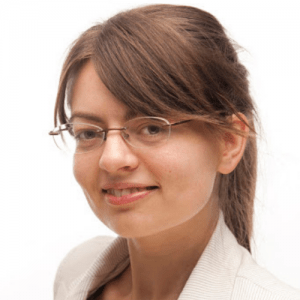
Dr. Doina Bucur
She is an Assistant Professor in Computer Science at the University of Twente, and part of the faculty’s Ethics Committee. She completed her PhD in Computer Science at the University of Aarhus in 2008, after which she worked as a post-doctoral researcher at Oxford University.
She works with data which describes how societies of humans (or animals, or objects) link and interact with each other, either on online social networks, or in real life. This is with the aim to understand, and sometimes improve, these societies.
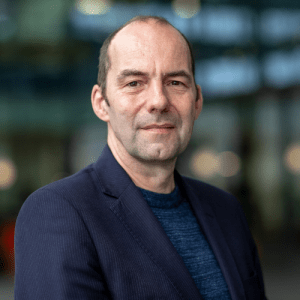
Prof. dr. Vincent C. Müller
He is Professor for Philosophy of Technology at the Technical University of Eindhoven – as well as University Fellow at the University of Leeds, Turing Fellow at the Alan Turing Institute, London, President of the European Society for Cognitive Systems, and Chair of the euRobotics topics group on ‘ethical, legal and socio-economic issues’.
Müller was Professor at Anatolia College/ACT (Thessaloniki) (1998-2019), Stanley J. Seeger Fellow at Princeton University (2005-6) and James Martin Research Fellow at the University of Oxford (2011-15). He studied philosophy with cognitive science, linguistics and history at the universities of Marburg, Hamburg, London and Oxford.
He is known for his research on theory and ethics of disruptive technologies, particularly artificial intelligence (AI). He has published widely on the philosophy of AI and cognitive science, philosophy of computing, philosophy of language, applied ethics, etc.





